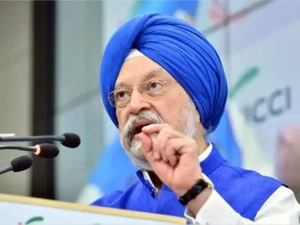
Some experiences that nations go through continue to evoke collective trauma even decades later. The harsh period of the Emergency is one such trauma when all civil liberties were suspended.
Those who did not live through the Emergency will probably never truly know what it was like. Subsequent generations would not know how it felt when people simply went missing or people turned up dead after authorities picked them up without due process, thousands were jailed, many were forcefully sterilised and an entire nation was sought to be silenced.
The more we read about the turn of events which led to the imposition of the Emergency, the conditions during the period it was in force and its complete repudiation by the Indian electorate in the next elections, some time-tested truths are reinforced and some newer insights gleaned.
The genesis of the Emergency lay in the blatant sense of entitlement of the political leadership, especially one that comes with birth. Such dynasts grow up with a feeling that it is their birthright to have their way and if they do not, they react with a vindictive and vengeful mindset, bent upon destruction.
“Toe my line or I destroy it all” — this has been a continuing phenomenon with the Congress’ ruling dynasty. When Indira Gandhi’s electoral victory was declared null and void due to malpractices in the Raj Narain case, she decided to destroy the democratic structure itself. She has the dubious record of dismissing most number of state governments.
When those who are used to ‘all power and no accountability’ within their family and within their party get anywhere close to power, an Emergency or an Emergency-like situation is inevitable.
Even within their own party, the dynasts are unsparing. One by one, anyone who has any semblance of ability is identified as a threat and hounded out of the party or relegated to the sidelines.
Prime Minister Narendra Modi and the BJP represent the antithesis of the forces that perpetrated the Emergency. They not only fought against the Emergency but also stood for progress.
For a long time, we have seen a Big Brother relationship between the Centre and the states. A ‘One Size Fits All’ approach had been used for years, not taking into account the heterogeneity of different states and their local requirements. In a unique departure from the past, PM Modi has stressed on the need to leverage co-operative and competitive federalism to achieve all round growth.
Just a couple of days ago, Modi wrote about the Centre and states coming together to enact reforms and ensure Ease of Living. From implementing the recommendations of the 14th and 15th Finance Commission of devolving 42% share of central taxes to the states to the setting up of the GST Council to the scrapping of the Planning Commission, the voices of states are heard and heeded in the spirit of cooperative federalism. PM adopted a cooperative approach in the management of the Covid pandemic with the states and even the vaccination strategy was changed because states asked for it and when they did a u-turn, even that was accommodated.
While critics languished in jails during the Emergency, critics –– even unfair critics –– of Modi are getting their voices heard. Modi has warmly praised Opposition leaders such as Ghulam Nabi Azad, Mulayam Singh Yadav or Parkash Singh Badal, all of whom are politically opposed to the BJP.
People have a greater voice in both policy making and policy implementation. The continuous calibration of GST according to people’s feedback is an example of this. It is clear that democracy and development can only be strengthened by valuing competence and compassion.
The Emergency was a dynasty-inflicted disaster and if dynastic politics driven by entitlement continues, more such disasters will be wrought upon India time and again. The form may change, but the substance will remain.

देश में एक करोड़ यात्री प्रतिदिन कर रहे हैं मेट्रो की सवारी: पुरी ..

Union Minister for Petroleum and Natural Gas and Housing and Urban Affairs, Hardeep Singh Puri addressing a press conference in ..

Joint Press Conference by Shri Hardeep Singh Puri & Dr Sudhanshu Trivedi at BJP HQ| LIVE | ISM MEDIA ..
(3).jpg)
"I wish a speedy recovery to former Prime Minister Dr Manmohan Singh Ji. God grant him good health," Puri wrote. ..